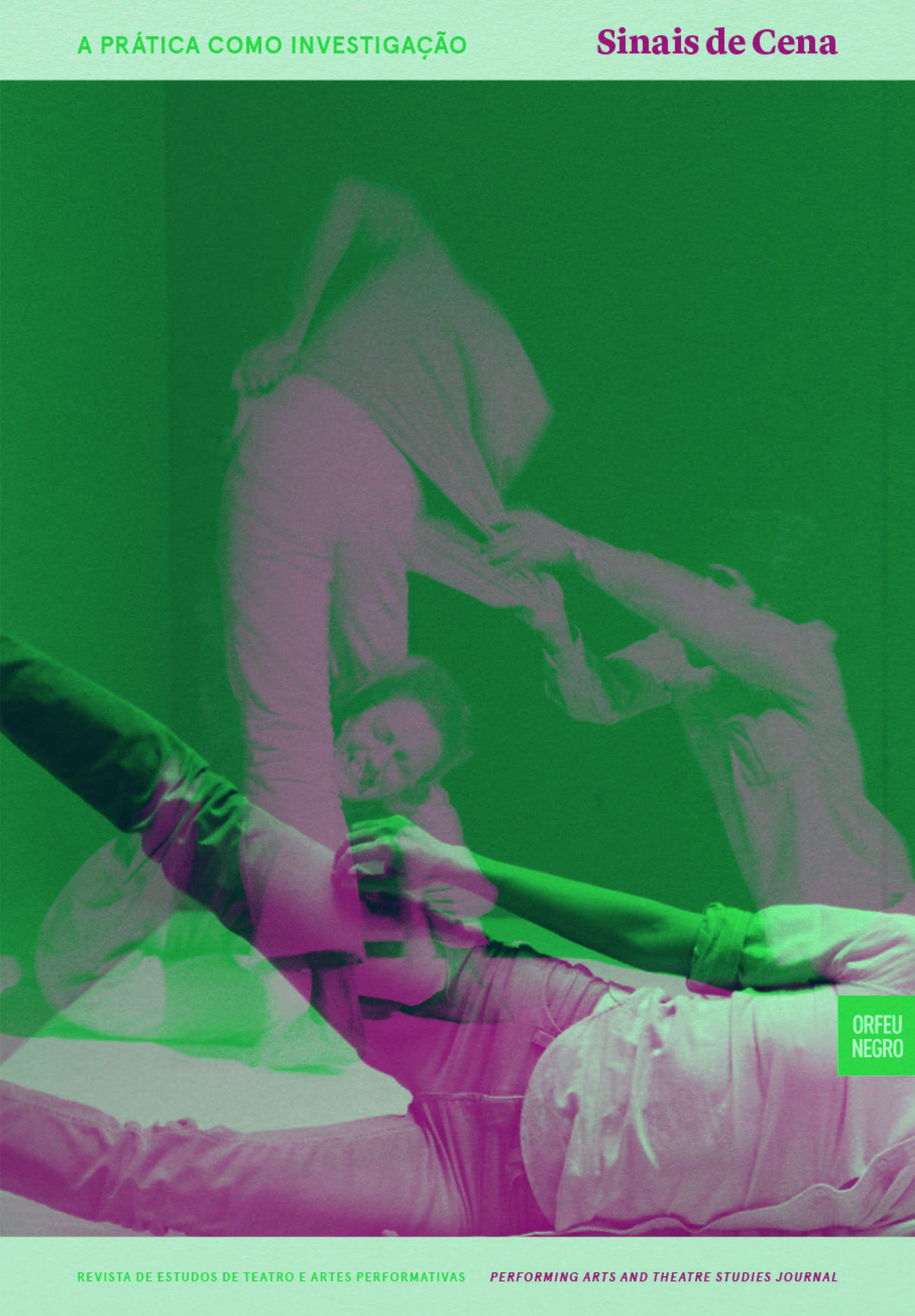Antídoto e método: práticas de investigação artística em contexto coreográfico
DOI:
https://doi.org/10.51427/cet.sdc.2020.0005Keywords:
Real-time composition, RE.AL, João Fiadeiro, AND_LAB, Fernanda EugénioAbstract
Since 1999 I’ve been following João Fiadeiro’s work with some attention. Sharing his processes of research with several colleagues, collaborators, artists, research‑ ers, Fiadeiro has been able to produce myriads of questions under the umbrella of Real Time Composition (CTR). As I could explore some of these questions in workshops with Fiadeiro and his collaborators (first as a dance student, and later as an artist and researcher, 1999‑2018), I ended up using them and exploring them further in my PhD dissertation Body, Image, and Choreographic Thinking (2016). A great portion of the present paper was written between 2012 and 2015 as part of this larger research project.1 Several research practices – such as Fiadeiro’s CTR, Lisa Nelson’s Tuning Scores, Mark Tompkins’ Real Time Composition; Modus Operandi AND, or the Guest‑Host (G.HOST) game practice, organized by Eugénio and Fiadeiro, among many – present ways to articulate strategies in order to create new meanings and to think with and about ways of acting‑thinking. This paper tries to enhance the capacity that some of these practices have in themselves, and in the speech they produce, to generate the possibility of an antidote for each proposition (i.e. the possibility to escape dogmatic tendencies that methods in general reveal).
Downloads
Downloads
Published
How to Cite
Issue
Section
License
Copyright (c) 2020 Sílvia Pinto Coelho

This work is licensed under a Creative Commons Attribution-NonCommercial-NoDerivatives 4.0 International License.
Authors who publish in Sinais de Cena will release their contributions under the Creative Commons — Attribution-NonCommercial-NoDerivs 3.0 Portugal — CC BY-NC-ND 3.0 PT: “Licensees may share, copy and distribute the material in any medium or format, under the following terms: 1) You must give appropriate credit, provide a link to the license, and indicate if changes were made. You may do so in any reasonable manner, but not in any way that suggests the licensor endorses you or your use. 2) You may not use the material for commercial purposes. 3) If you remix, transform, or build upon the material, you may not distribute the modified material".











